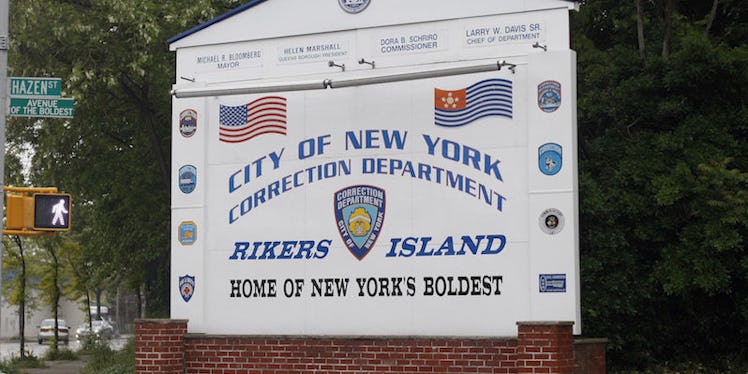
This Guy Spent 5 Months In Jail Over $2 Because The System Is Completely Broken
Imagine spending almost five months in jail, only to find out you could've been free for $2.
That's exactly what happened to Aitabdel Salem, a 41-year-old man from Queens, New York.
According to New York Daily News, Salem was jailed on November 21, 2014 and held on a $25,000 bail for attacking an NYPD officer who was reportedly arresting him for theft at a clothing store in Manhattan.
A week later, however, prosecutors failed to indict him and he was ordered released, with one minor catch.
Salem still had bail set on two minor charges, tampering and mischief, amounting to $2. But his lawyer, Stephen Pokart, never told him and he spent the next five months in New York's Rikers Island jail, an infamously overcrowded institution with a history of inmate abuse.
As the New York Daily News explains, judges sometimes set dollar bail amounts on subsequent charges if they believe the bail set on the initial charge is sufficient. This explains why Salem, an immigrant from Algeria, still had to pay $2 in order to be released.
For understandable reasons, Pokart is no longer Salem's attorney.
Salem was released in April 2015, but was charged with bail jumping not long after for missing his police assault arraignment in May 2015.
According to Salem's new lawyers, Glenn Hardy and Theodore Goldbergh, the Queens man should not be held accountable for this because he didn't know. A letter regarding Salem's court date that was sent to the address on file was reportedly stamped “Returned to Sender” by the post office.
As Goldbergh stated,
You can't do what you don't know and if you're a defendant in a criminal case you certainly have a right to rely upon the system what your next court date is.
Salem is back in jail because of all of this, and his bail is set at $30,000.
This isn't the first time New York City's court system made a mess of things.
In one of the more infamous and publicized cases, a young man named Kalief Browder was held for three years on Rikers without being convicted of a crime. He couldn't afford bail, which was set at $3,000.
Browder spent nearly two of those years at Rikers in solitary confinement, which took a significant toll on his mental health and he struggled with paranoia, anxiety and depression after his release.
Tragically, around this time last year, on June 6, 2015, Kalief Browder committed suicide.
About a month later, New York City Mayor Bill de Blasio announced a plan that would eliminate bail for some of those accused of non-violent or low-level crimes. As an alternative, these individuals are given the option of being placed under various forms of supervision and undergo drug and behavioral therapy.
This move was meant to reduce the number of poor people who, like Browder, have not yet been convicted of a crime but spend an excessive amount of time in jails like Rikers because they can't make bail.